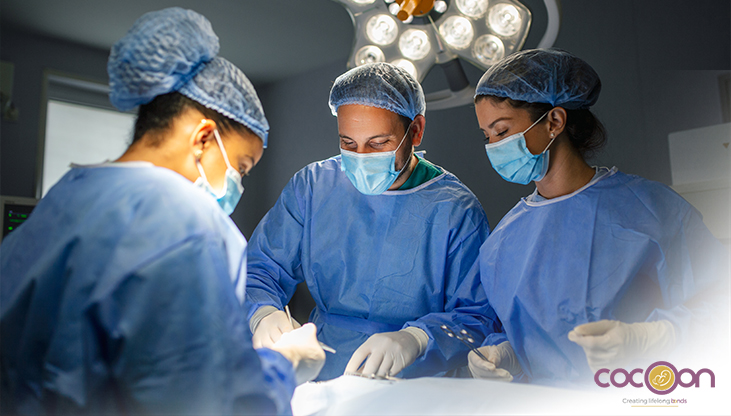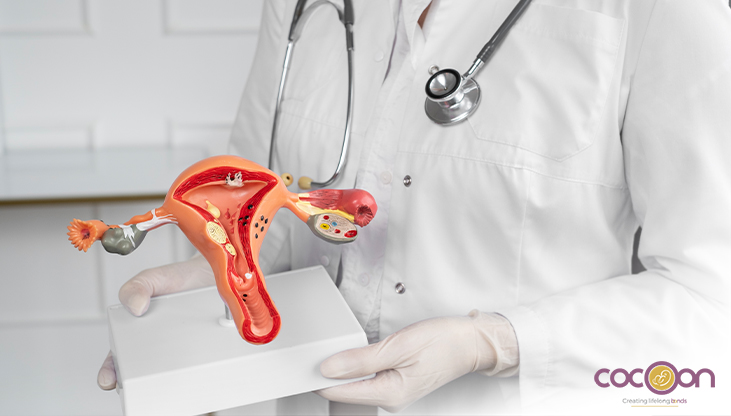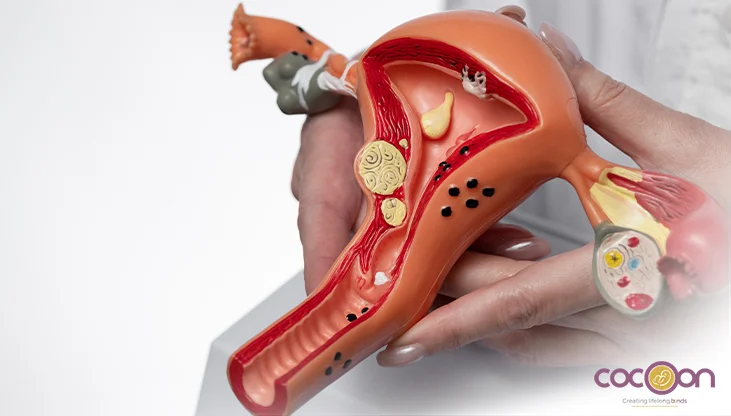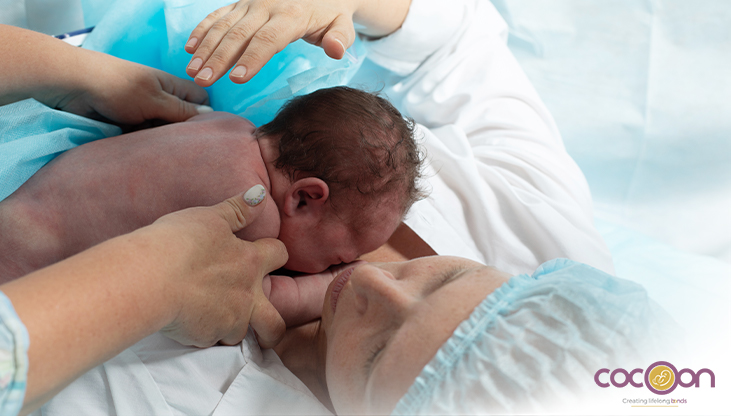Fibroids are benign tumors that form in or around the uterus. Although most women have fibroids without significant discomfort, others develop symptoms such as heavy menstrual flow, pelvic pain, fatigue, or even inability to get pregnant. When medicines cannot manage these symptoms, fibroid surgery is a step toward a successful cure.
If your doctor has recommended surgery for fibroids, it's totally understandable that you are overwhelmed or apprehensive. But here's the best part—preparing for surgery the proper way can take a lot of stress out of it. From nutrition and medical evaluation to recovery after surgery, understanding what to do at each phase will allow you to face your therapy with confidence.
Understanding Fibroid Surgery: What Are Your Options?
Before going into preparation, it's helpful to know what kind of fibroid surgery you're having. The type of surgery will vary based on the size, location, and number of fibroids, your age, symptoms, and whether you want to have children in the future.
If saving fertility is an issue, your doctor might advise you to have a myomectomy, a surgery where the fibroids are excised but not the uterus. Alternatively, if the fibroids are huge, multiple, or a major source of discomfort—and you're finished having children—your doctor might recommend a hysterectomy, which involves removing the uterus.
There are also various methods in which these surgeries are done. Laparoscopic or robotic procedures are minimally invasive, and they utilize small cuts and specialized tools, leading to faster recovery. Compared to that, open surgery or abdominal surgery involves a bigger cut and longer time for healing, but in some cases, it might be required for large or deeply placed fibroids.
Knowing your type of surgery gives you physical and emotional preparation.
Fibroid Surgery Preparation Checklist
Being well-prepared before your surgery can reduce complications and support faster healing. A good place to start is by asking your gynecologist detailed questions about the procedure. Understand whether you’re undergoing laparoscopic, robotic, or open surgery, and find out how long you’ll be in the hospital and how much rest you’ll need afterward.
Then, your physician takes a complete medical history. This is crucial to discover any current conditions or medications that might affect surgery. Tell them of any past surgeries, your menstrual background, bleeding problems, allergies, and all medications or supplements that you take.
You can be advised to discontinue some medications, particularly blood thinners or some herbal supplements. These should preferably be discontinued about 7 to 10 days prior to surgery.
Be sure to schedule time away from work in advance. Depending on the operation, recovery may be as short as 2–4 weeks for laparoscopic procedures or up to 6–8 weeks for open surgery.
Tests Required Before Fibroid Surgery
Your physician will, prior to the procedure, send you for a few preliminary medical tests to ensure that you are healthy enough for surgery and to reduce any possible risks.
A Complete Blood Count (CBC) to screen for anemia or evidence of infection is among the most critical tests.
You’ll also be required to undergo blood grouping and cross-matching. A coagulation profile will assess your blood’s ability to clot, and liver and kidney function tests ensure your organs can handle anesthesia and medications.
For a better visualization of your uterus, a pelvic ultrasound is typically done. In certain situations, your physician may request an MRI scan, particularly if you have many or complex fibroids.
Other pre-operative tests might involve an electrocardiogram (ECG) for a checkup of heart health, especially for women aged over 40, and a chest X-ray, if general anesthesia is planned.
Diet Before Fibroid Surgery: What to Eat and What to Avoid
Your body should be in top condition prior to surgery. A healthy, balanced diet will enhance your hemoglobin levels, promote immunity, and promote healing of tissues after surgery.
Among the most crucial things is boosting your consumption of iron-containing foods. Most fibroid sufferers are anemic, and it's necessary to have foods that construct your iron levels. Dark leafy greens such as fenugreek and spinach, beetroot, pomegranate, dates, legumes, and chicken or fish are lean meats.
Don't miss out on protein foods, since they are essential for repair of cells and immune function. Eggs, curd, paneer, moong dal, and chana are excellent options. You also require high-fiber foods in order to minimize the risk of constipation, which is a frequent occurrence after surgery because of painkillers and decreased mobility. Whole grains, papaya, and guava fruits, and carrots and bottle gourd vegetables are beneficial.
For improved wound healing, add vitamin C fruits (like amla and oranges) and zinc seeds like sunflower and pumpkin seeds.
Skip oily, pungent, and highly processed foods because they lead to acidity or bloating. Reduce caffeine and alcohol intake, and avoid heavy red meat if digestion is sluggish.
Stay well-hydrated—8 to 10 glasses of water every day. Add coconut water or oral rehydration solutions if you are weak or dizzy.
What to Do 24–48 Hours Before Surgery?
The final two days before surgery are crucial. You’ll be instructed to stop eating solid foods approximately 6 to 12 hours before the procedure. Your doctor may prescribe a laxative or enema, especially if it’s an abdominal surgery, to ensure the bowel is cleared.
Fasting starts at midnight prior to the operation. Sometimes you can have clear fluids within 4 hours of the surgery. Always adhere to your doctor's precise instructions.
On the day of the operation, arrive at the hospital on time. Nurses will take your vital signs, and you might receive medicine to help calm your anxiety or keep you from getting an infection. You'll then be prepared for the anesthesia and transferred into the operating room.
Post-Surgery Recovery: A Week-by-Week Plan
Your recovery will depend on the type of fibroid surgery performed, your age, overall health, and how your body responds to the operation. Here's a general overview of what to expect.
Week 1: Rest and Recuperation
During week one, rest is the best medicine. You will likely feel tiredness, discomfort or pain at the surgical site, spotting or light vaginal bleeding. You will be given pain relief and antibiotics by your physician. Maintain light food intake of easily digestible high-fiber foods and drink plenty of water. Do not bend, stretch, or lift heavy weights.
Urinary pads help with the control of mild bleeding. Your operation site should be kept clean and dry.
Week 2: Gentle Movement
You will start to feel a bit better, but you may still feel weak. Walking is recommended to avoid blood clots. Don't do housework or lift children. You can begin pelvic floor exercises if your doctor advises it. Follow a healthy light diet and drink plenty of water.
Week 3 to Week 4: Returning to Daily Activities
By week three, your energy should start to improve. If you've had open laparoscopic surgery, you'll be able to start returning to light household duties and thinking about going back to work. Open surgery patients may still require additional rest. Steer clear of any strenuous physical activity, driving, or lifting weights.
Week 5 to Week 6: Almost There
Most women by this time are almost back to normal. You may go back to your normal diet and gradually resume exercise after discussing it with your physician. Have a follow-up visit to monitor the healing. If you've undergone a hysterectomy, the physician will also advise when to go back to intimacy.
Quick Summary
- Understand your type of surgery: myomectomy or hysterectomy
- Plan ahead: schedule tests, adjust medications, plan time off
- Nutrition: pay special attention to iron, protein, fiber, and fluids
- Strictly adhere to all pre-surgery fasting and hygiene regulations
- Anticipate 2–6 weeks of recovery depending on your operation type
- Be emotionally supported: contact loved ones or a counselor
- Follow-up care is important to monitor your recovery process

















